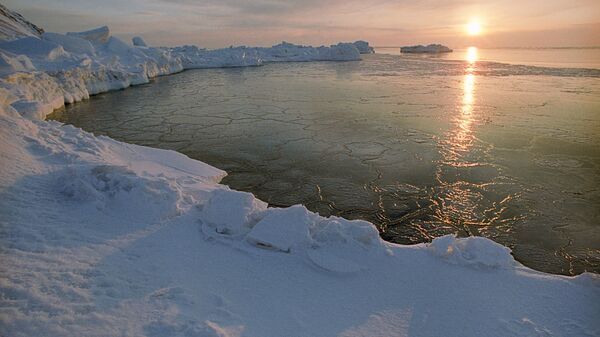"The Arctic is going through the most unprecedented transition in human history, and we need better observations to understand and predict how these changes will affect everyone, not just the people of the north," Jeremy Mathis, director of NOAA's Arctic Research Program, said in a meeting of the American Geophysical Union in New Orleans this week.
"The Arctic has traditionally been the refrigerator of the planet but the door to that refrigerator has been left open," he added.
During the meeting, Rear Adm. Tim Gallaudet, the acting administrator of NOAA and a Trump appointee, said that the report's findings "directly relate to the priorities of this administration," bringing up naval submarine operators' concerns that the increased movement of ice floes in the Arctic has contributed to "the most hazardous" conditions they have ever reported.
The peer-reviewed report is the culmination of work by 85 scientists. The findings reveal that even though the Arctic region warmed up less in 2017 than in 2016, it is still warming up at a rate that is double that of the rest of the world.
"This data set shows that the magnitude and the sustained rate of warming of the sea decline is unprecedented over the last 1,500 years and likely longer," Emily Osborne, a NOAA arctic researcher said at the meeting.
The problem, Osborne points out, is not only that the Arctic sea ice is melting faster than ever, but that the existing ice is thinner and no longer remains frozen throughout the summer. In 2017, "multiyear ice," or ice that survives the summer melting season, comprised only 21 percent of the total arctic ice — it was 45 percent only 33 years ago.
"Like the Climate Science Special Report released in November, the Arctic report card is completely at odds with the policies and statements of the Trump administration, which continues to question the reality of human caused climate change," Phil Duffy, president of the Woods Hole Research Center, said in a recent written statement.
"The report card dispassionately documents an array of striking changes in the Arctic environment, which it attributes to increasing greenhouse gases in the atmosphere," he added.


